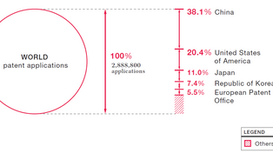What remedies are available toredress IP infringement?
- Admin
- May 4, 2023
- 1 min read

Intellectual property (IP) rights holders have the same recourse as traditional property rights holders, resorting to legal channels such as civil litigation, arbitration, or mediation when their rights are infringed. Legal remedies can include injunctions, orders to cease infringement, and the award of damages. However, before entering into a formal trial, the court can take temporary measures such as issuing interlocutory injunctions or preservation orders for evidence, especially if the infringement could cause irreparable damage to the rights holder. The damages awarded for infringement may include reasonable expenses incurred by the right holder, such as attorneys' fees.
In an international trade context, IP-based products may be manufactured in one country and exported to another. Border measures become an essential means of IP protection. For instance, the TRIPS Agreement enables right holders to apply to competent administrative or judicial authorities to request that customs officials prevent the importation of counterfeit trademarks or pirated goods. In China, IP rights holders can request administrative authorities to investigate alleged infringement parallel to filing a lawsuit in court, known as the "dual-track system."





















Kommentare